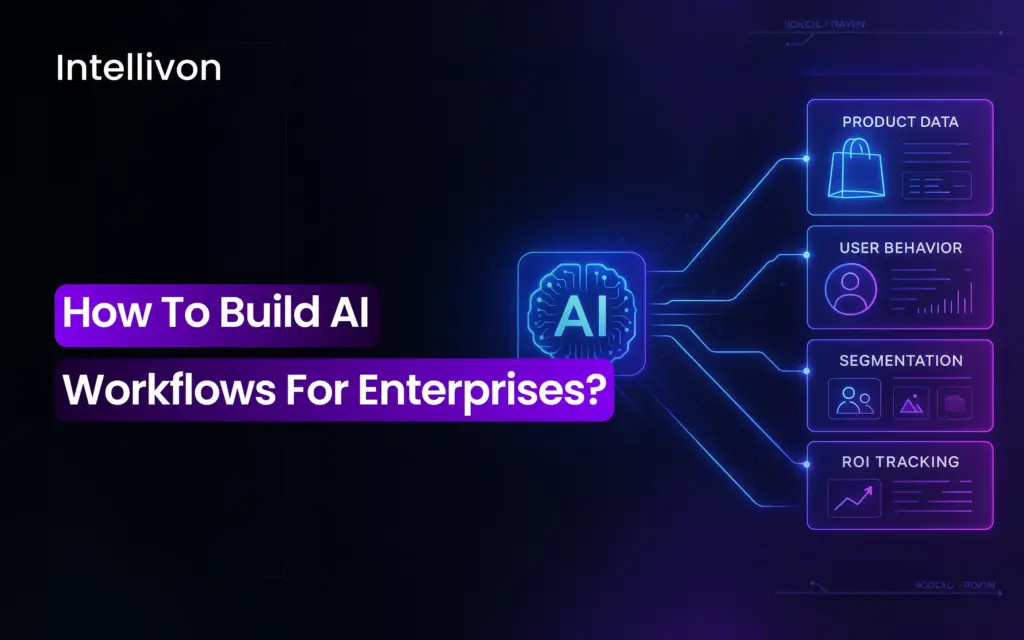How To Build AI Workflows For Enterprises

If your enterprise is still dependent on manual workflows, you are seriously lagging behind. 80% of enterprises out there are already leveraging AI to automate

If your enterprise is still dependent on manual workflows, you are seriously lagging behind. 80% of enterprises out there are already leveraging AI to automate